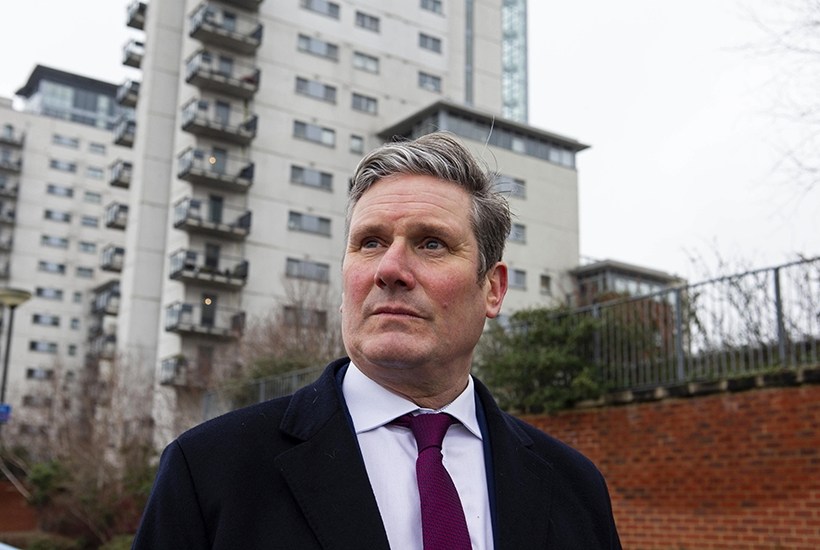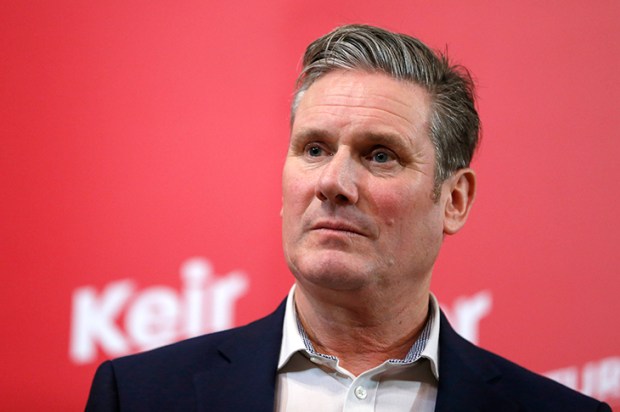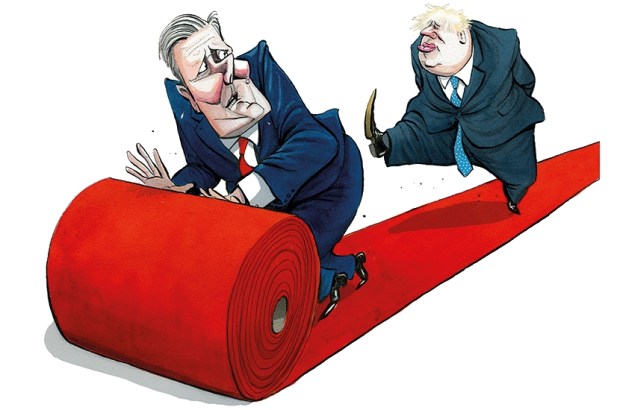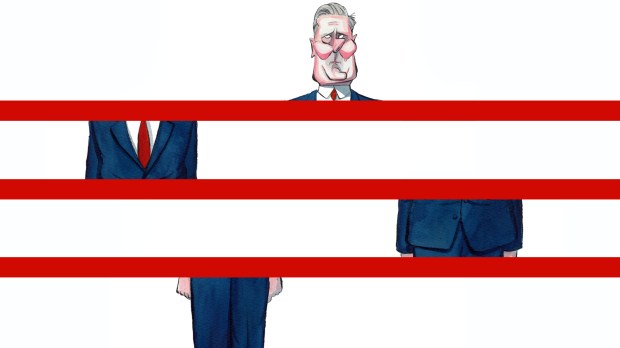What is Keir Starmer thinking? His approach might baffle Tory MPs, who wonder if he will ever spring to life. The answer, though, is that he’s playing a long game. He hopes he will be a strong opposition leader when the time is right.
For now, it is time to offer support to Boris Johnson’s government. The pandemic has created tricky terrain for the shadow cabinet. Much like in wartime, normal political rules don’t apply, because ‘people want the government to succeed’. Starmer’s supporters say coronavirus means the Labour party has been squeezed out of the conversation.
It’s not as simple as Starmer not knowing what he wants, even if some Labour MPs see this as the main problem. He initially planned his interventions as ‘constructive opposition’ in a time of national crisis, but this approach has started to wear thin. Tory MPs have taken to referring to him as ‘Captain Hindsight’, because of his habit of calling for measures that were clearly imminent. Meanwhile the media have grown more critical of him and Labour’s popularity has fallen.
A successful vaccine rollout has bolstered the Tories. Starmer’s critics say this was not inevitable. Opposition parties across the world have managed to make hay, not just in spite of the pandemic but because of it. Joe Biden beat Donald Trump in the election, while in Germany, Angela Merkel is under fire. ‘It can be done. Just look around,’ says an unsympathetic Labour colleague.
But Starmer’s supporters remain optimistic about the future. A phrase frequently heard among Labour aides is that there is a ‘mountain to climb’ and the new team started at base camp. They have time. A five-year parliament would end in December 2024. Even a snap election would not come until spring 2023.
Starmer has started his internal detox. He suspended Jeremy Corbyn and fired Rebecca Long-Bailey from the shadow cabinet over anti-Semitism. Taking a strong line on the issue has given him a boost. He inherited a party so toxic that some of its own former MPs voted Tory because they thought Corbyn a danger.
A harder task will be rebuilding the Labour party and working out what it now stands for. As one Labour aide put it, the party must ‘show people we are not mad’. There has been some good news. The appointment of Anas Sarwar as the leader of Scottish Labour in the wake of Corbyn ally Richard Leonard’s departure is an important step in winning back voters north of the border.
As for the red wall, Labour knows that rebuilding confidence won’t happen overnight. ‘Anyone who thinks we can win back the red wall in less than a year is mistaken,’ says one figure involved in strategy. ‘We lost voters’ trust over a long period that predates Corbyn. It’s going to take time.’
A recent report for the website ‘Joe’ offers flickers of hope. Residents in the former Labour safe seat of Bolsover said that Starmer was a patriot, although they still worried that the party was too left-wing. It chimed with the findings in the party’s own focus groups.
Labour’s first big electoral test under Starmer will be the local elections in May. The party has been trying to manage expectations since January, but they may do better than expected. Many of these councils were last contested at the time when Corbyn’s popularity was at its lowest and Theresa May was 18 points ahead, meaning there ought to be Labour gains.
Starmer’s priority is to repair his party, rather than opposition politics. This may explain why he is ready to vote to give Johnson another six months of emergency powers. The success of the vaccine programme means the usual political rules ought to be back in place by the summer. It will then be Starmer’s responsibility to tell the public who he is and what he stands for.
Got something to add? Join the discussion and comment below.
Get 10 issues for just $10
Subscribe to The Spectator Australia today for the next 10 magazine issues, plus full online access, for just $10.
You might disagree with half of it, but you’ll enjoy reading all of it. Try your first month for free, then just $2 a week for the remainder of your first year.















Comments
Don't miss out
Join the conversation with other Spectator Australia readers. Subscribe to leave a comment.
SUBSCRIBEAlready a subscriber? Log in